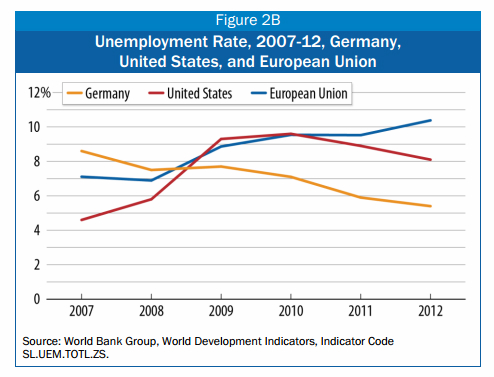Election Primer: The Candidates’ Kitchen-Table Economics

After a year and a half of presidential campaigning, we've become intimately familiar with the candidates' personalities, personal lives, and political stances. But how will they address the important issues around inequality, poverty and economic opportunity for all Americans if they are elected? Over the next few weeks, we will hear from the candidates themselves in a series of debates. Here are some of their economic platforms in brief.
Democratic presidential candidate Hillary Clinton's economic plan, laid out on her website, covers the entire gamut of issues, from creating jobs, to boosting small business, to expanding social security and Medicare. Echoing the progressive spirit of the current elections, it also includes major provisions on climate change, making college debt free, closing the gender wage gap, and addressing income inequality. The plan's theme, is focused on "creating an economy that works for everyone", calls for active government intervention to address inequality and kick-start economic growth. A sampling of Clinton's most notable promises:
- Invest $275 billion in infrastructure over five years
- Hold corporate executives accountable when their companies violate the law
- Raise taxes by four percent on taxpayers making more than $5 million per year, and ensuring that millionaires pay at least a 30 percent tax rate
- Raise the federal minimum wage to $12
Clinton further clarified and explained her plan in a major speech in August, which NPR has helpfully annotated with a detailed fact check. Also, check out her recent op-ed in the New York Times, which specifically focuses on issues affecting the poor.
Meanwhile, Republican nominee Donald Trump's economic vision, "Winning the Global Competition," lays out a plan that primarily focuses on reducing regulations and taxes in an attempt to keep businesses from moving jobs overseas, as well as focusing on the issues of trade policy and immigration more generally. In what he calls "America First Economics", Trump focuses on reducing taxes, limiting the role of government, reducing regulatory burdens, and reducing environmental protections in order to encourage businesses to grow and create domestic jobs.
A sampling of Trump's most notable promises includes:
- Limit corporate taxes to 15 percent
- Simplify the tax code to include three brackets instead of seven
- Put a temporary hold on all new federal regulations, and abolish existing regulations including the EPA's Clean Power Plan and the Waters of the United States rule
- "Save the coal industry" and bring back the Keystone Pipeline
Trump also appears to be against any raising of the minimum wage, although it has been difficult to pin down his exact stance. Trump also bolstered his economic vision with a major policy speech in August, for which NPR also did an annotation and fact check.
One area where Clinton and Trump find a rare nexus of agreement is in their cautious approach to free trade, which has "has emerged from wonky obscurity" to become a major hotbutton issue this year. Both candidates appear to have responded to voter anger and say they oppose the Trans-Pacific Partnership Agreement (TPP) despite the support it enjoys from their respective parties.
With a significant presence of third party candidates in this year's race, Libertarian Gary Johnson and Green Party candidate Jill Stein are expanding the boundaries of the conversation on economic growth and income inequality. However, neither Johnson or Stein will be on the stage during the first debate.
Johnson's plan focuses on reducing the government's role in the economy in order to spur business growth. His plan, appropriately, has just three provisions:
- Pass a balanced budget and veto deficit spending
- Reduce business regulation
- Replace "all business and income taxes with a single consumption tax"
Interestingly, Johnson doesn't follow Trump in calling for abolishing the EPA, but instead acknowledges that the EPA "plays an important role" in protecting the environment from harm.
Stein's platform, the "Power to the People Plan" calls for an increased government role in the economy, with a focus on combating climate change, fighting poverty and inequality, and investing in green jobs. The most notable feature of Stein's program is its focus on the responsibility of the government to provide for citizens' "economic human rights", which include healthcare, jobs, and higher education.
A sampling of Stein's lengthy platform includes:
- A "New Green Deal" to transition to 100 percent renewable energy by 2030 and create 20 million green jobs
- Guarantee citizens the rights to "food, water, housing, and utilities"
- Establish a single payer healthcare system
- Make university education tuition free
- Raise the minimum wage to $15 and guarantee employment as a right
As the third party candidates continue to gain traction in this year's election, it will be worth watching to see how their ideas influence the national conversation on economic issues.
Stay tuned for updates leading up to the elections as we follow the candidates and take a more in depth look at specific issues.
Click here for more quick reads featuring interesting articles on philanthropy and impact investing
Comments are closed here.